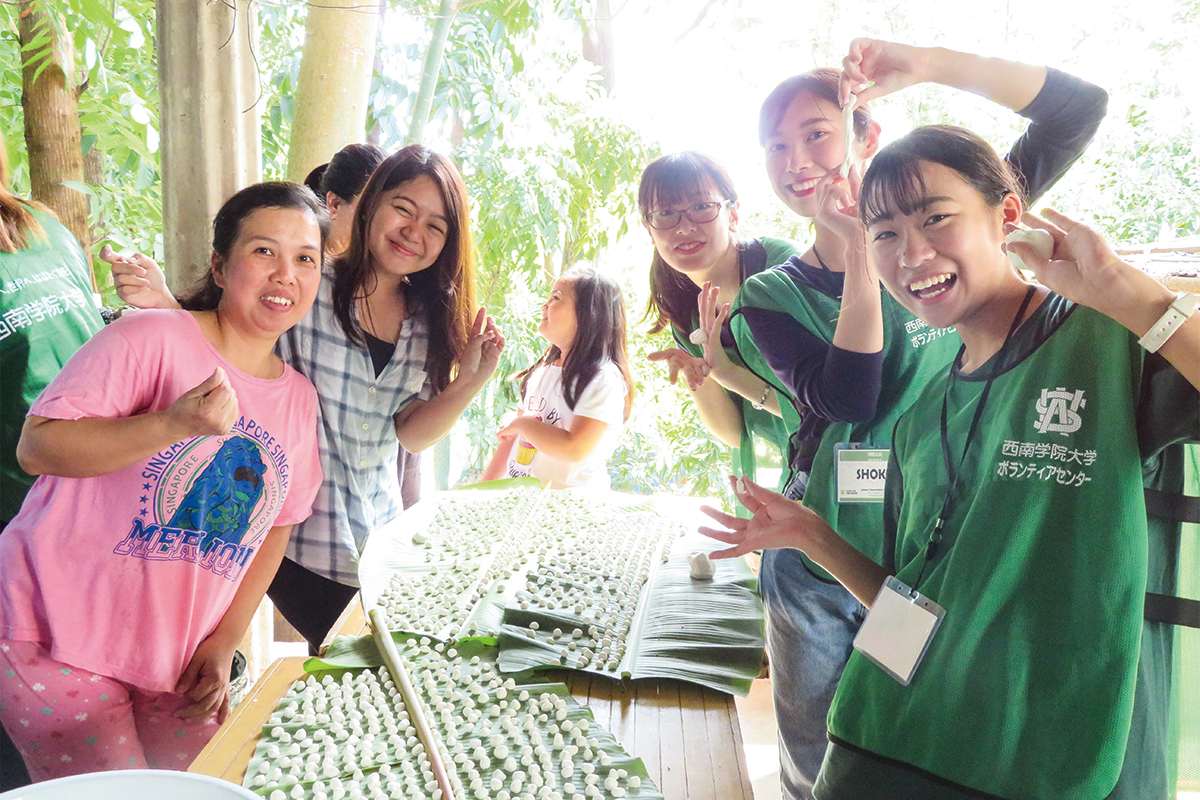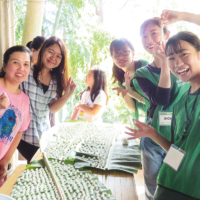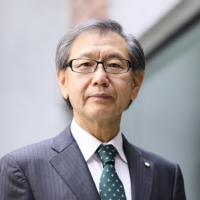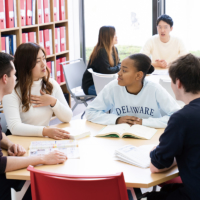Ever since its founding in 1916 by Southern Baptist missionary C. K. Dozier, Fukuoka’s Seinan Gakuin University has been guided by its motto “Seinan, Be True to Christ.” That founding spirit, SGU President Naoki Imai said, remains core to the education that the university provides to this day.
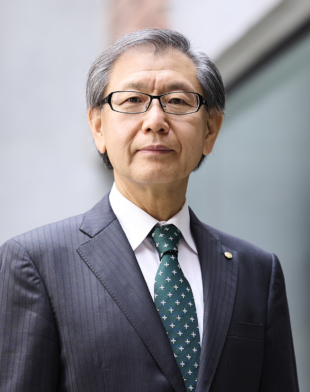
That spirit is also why the fact that the G7 Summit is taking place in Hiroshima is particularly meaningful, he added.
“In essence, the education that we provide is based on the Christian spirit,” Imai said, and “fundamental to that (are) ‘love’… and ‘peace.’” Having suffered the world’s first atomic bombing, Hiroshima today is known as a city of peace, and this, Imai observed, resonates with SGU’s own founding spirit.
International exchange
SGU is a comprehensive educational institution with about 8,400 students attending classes and participating in programs spread out across seven faculties and a graduate school in Fukuoka, in northern Kyushu. Of particular interest in light of SGU’s founding spirit has been its international exchange program. Established in 1971 through the personal backing and passion of then-President Eiichi Funakoshi, the program has grown to connect SGU with 102 universities in 33 countries. More than 1,200 SGU students have studied abroad, and about 200 to 250 students from beyond Japan have made the reverse trip to SGU every year. Its international division offers courses in Japanese studies, including language, culture, history, business, and politics, that are taught in English.
The love and peace that are the essence of the Christian spirit are what lay behind these efforts, explained Imai. It is important to learn about people who are strangers to you, he added, and providing such an opportunity for members of younger generations gives them a way “to form bonds for the future. This can contribute to creating peace among different peoples and countries.”
For a positive future
SGU was among the first Japanese universities to create such an international exchange program. While the Christian spirit remains central to SGU’s own mission, Imai hastened to add that its partner institutions have not been selected on the basis of any particular religious affiliation. Rather, the focus is on finding ways to provide SGU students with a wide range of opportunities to experience different cultures. Similarly, he added, having students from many different countries on campus gives SGU students who do not choose to go abroad an opportunity to interact with peers raised in a different culture. The goal for not just SGU students but also their incoming peers is that the experience will lay the foundations for a more open and positive future.
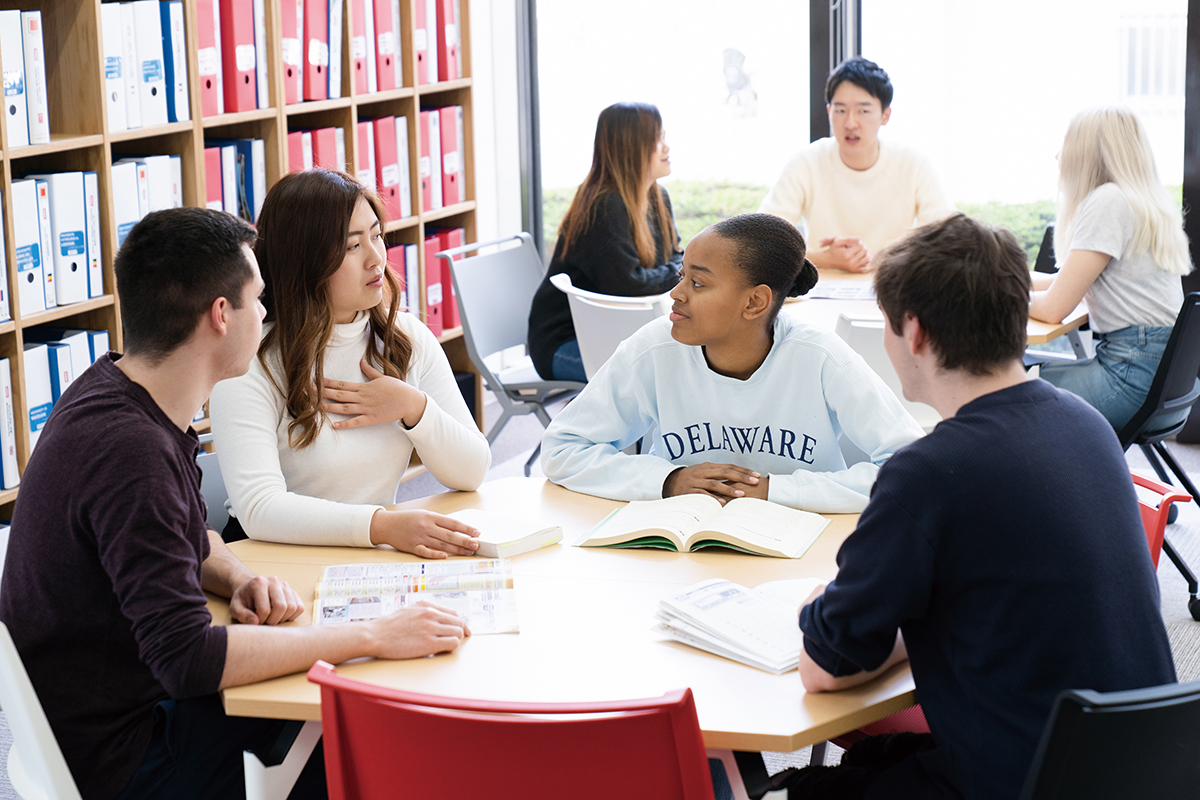
Given SGU’s origins as a university founded by a Westerner, Imai noted, many of the institutions with which it has established ties are in Western countries, including the first two, Baylor University and State University of New York, Oneonta. However, he added, SGU has been forging agreements with more and more institutions around Asia lately, including in South Korea, Thailand and Malaysia. “An increasing number of students are interested in studying in those countries and learning about their cultures,” he said.
Chapel hour
In the era of global climate change, for an institution to be international also suggests environmental awareness. For SGU, Imai said, the Christian spirit of love is directly linked to the goals of sustainable development. Toward that end, SGU has recognized a need to manifest that love in — literally — concrete terms. It has been working to renovate and modernize existing facilities or construct new ones as a way to contribute to the realization of the U.N. sustainable development goals. The university has a new, modern library building, and a new gymnasium is slated for completion this June. There are also plans, Imai said, to create a new student union to house the university’s extracurricular club offices. Such infrastructure upgrades are expected to reduce SGU’s environmental impact.
There is also a curricular aspect to raising awareness about the importance of the SDGs. As a Christian institution, SGU has held chapel hour on Tuesdays, Wednesdays and Thursdays. Most of these convocations, which are not mandatory, last roughly 30 minutes (despite the name) and are led by speakers from within the university as well as invited guests from outside. They encourage students to think about a variety of issues, such as volunteering and environmental concerns. The attempt led to several groups of students visiting the Philippines and other countries to do volunteer work for local communities.
Gender issues are also a particular concern, Imai noted. SGU declared this April that it will promote diversity, equity and inclusion. Among the students themselves, some have formed a group called Seinan Rainbow Pride to provide support for addressing issues faced by LGBTQ students. Plans are also underway with student backing to ensure there will be gender-free toilets when the student union is built.
Data science education
SGU is also mindful of how students must face the need to winnow the ever-increasing flow of data from the digital realm to sort the wheat from the chaff. Toward that end, Imai said, SGU began taking a more aggressive approach to its data science education initiatives in April 2023. All students are now required to take a fundamental data literacy class this year, and a new class where students can learn practical application of data science will be available next year. This digital literacy initiative continues what many Japanese students have already begun to learn in their high school years.
“Today, students need to be able to read, interpret and then make judgments on their own about the data based on their interpretation of that data,” he pointed out, and this is meant to provide them with the foundations for doing so now and in the future.
There has been much talk of late, Imai added, about what the “impact” of a university education is. How effective is it? “An education is not something the results of which are immediately apparent,” he said. “You won’t necessarily see a concrete impact even one or two years after someone has graduated. … If you don’t take the long view, you may not be able to recognize what impact that education has had.”
Notable graduates
In that connection, Imai pointed to a number of SGU graduates who blossomed in the years after they studied at Seinan. For example, Tomoshi Okuda, an alumnus who studied theology at SGU and is now a minister, in 1988 founded the nonprofit Hoboku group in Kitakyushu to support the local population of homeless people.
Miho Tanaka, a graduate of the university’s Faculty of Literature, now works as a co-representative for Kakuwaka Hiroshima, a group that meets with parliamentarians from around the world to raise public awareness about nuclear issues and seeks to contribute to the total elimination of nuclear weapons.
And while he was a graduate not of the university itself but rather of its affiliated junior high school, Imai mentioned Tetsu Nakamura, who founded Peshawar-kai to provide medical and rural reconstruction support in Pakistan and later Afghanistan before his tragic death in 2019.
That being said, while such individuals have done work that noticeably embodies the SGU spirit, fame and notoriety are not the point when assessing the impact of an education, Imai said. Ultimately, he added, “It’s a matter of approaching the work that you are doing with those values in mind, and through that making your contribution in whatever you do.”
Going back to the significance of the G7 Summit taking place in Hiroshima and SGU’s values, Imai pointed to what the Department of Intercultural Studies calls the “Fieldwork on War” program. This multidisciplinary program has been sending small groups of students accompanied by a faculty member to locations around the world affected by war. While it was briefly slowed somewhat by the COVID-19 pandemic, in 2022 three separate groups went out to Okinawa, Hiroshima and Hawaii.
“Through this program, students can learn firsthand what exactly war is,” Imai said. “And likewise they can also come to understand what the value of peace is.”
This page is sponsored by Seinan Gakuin University.
Seinan Gakuin University
Address: 6-2-92 Nishijin, Sawara-ku, Fukuoka 814-8511, Japan
Tel: +81-92-823-3248
E-mail: [email protected]
URL: https://www.seinan-gu.ac.jp/eng/



